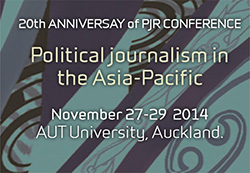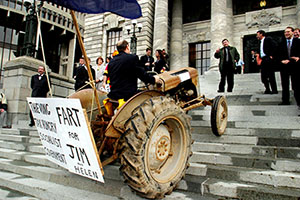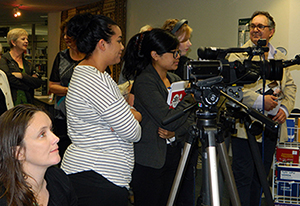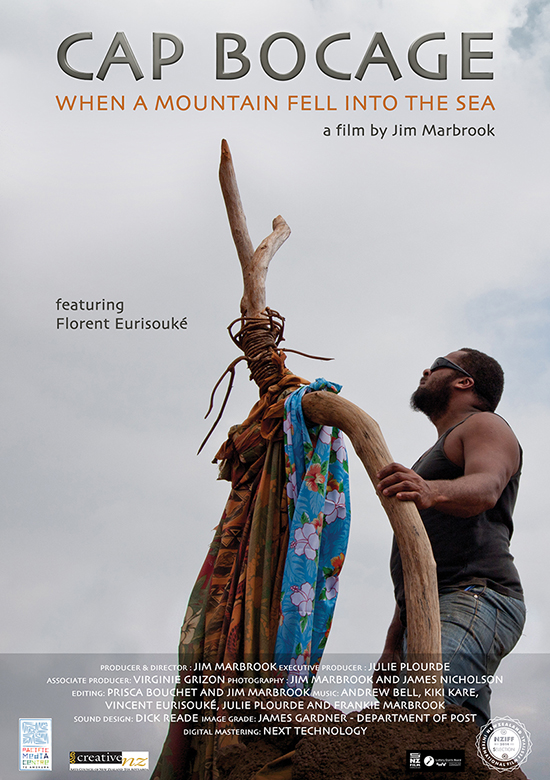Vol. 21, No 1, May 2015
Call for articles, panels and commentaries:
20th Anniversary of PJR Conference
Political journalism
in the Asia-Pacific
REGISTER TODAY
Pacific Journalism Review will celebrate 20 years of publication in November. A special anniversary conference is being planned for November 27/29 at AUT University.
A special anniversary edition will then be published as a book in May 2015. The editors will draw on the best papers presented at the conference for th e next edition of PJR. A feature of the conference papers will be political journalism related to asylum seekers and the “Pacific solution”; the “return of democracy” elections in Fiji in September; and the changing political and mediascape in the Pacific and important elections in Indonesia (implications for West Papua), New Caledonia, Solomon Islands, Tonga and Vanuatu.
e next edition of PJR. A feature of the conference papers will be political journalism related to asylum seekers and the “Pacific solution”; the “return of democracy” elections in Fiji in September; and the changing political and mediascape in the Pacific and important elections in Indonesia (implications for West Papua), New Caledonia, Solomon Islands, Tonga and Vanuatu.
Papers related to the history of newspapers and publications in the Pacific region will also be welcome. The full call for papers and additional paper themes are on the PJR website: www.pjreview.info
Among keynote speakers:
 • Filmmaker and political journalist Max Stahl who broke the news of the 1991 Santa Cruz massacre in Dili and who has documented the birth and evolution of his adopted nation Timor-Leste.
• Filmmaker and political journalist Max Stahl who broke the news of the 1991 Santa Cruz massacre in Dili and who has documented the birth and evolution of his adopted nation Timor-Leste.
• Political journalists among speakers include Republika magazine chief editor Ricardo Morris of Fiji and Television New Zealand Pacific correspondent Barbara Dreaver.
• Documentary maker and investigator Jim Marbrook, who has been filming the New Caledonian nickel mine and environmental disaster of Cap Bocage. His new film supported by the PMC will be screened at the conference. Film synopsis below. • Ces Oreña-Drilon, an award-winning Filipino television journalist once kidnapped by Abu Sayyaf rebels. She also had death threats over her investigation about the 2009 Ampatuan massacre. Her visit is being sponsored by the Asia New Zealand Foundation.
• Ces Oreña-Drilon, an award-winning Filipino television journalist once kidnapped by Abu Sayyaf rebels. She also had death threats over her investigation about the 2009 Ampatuan massacre. Her visit is being sponsored by the Asia New Zealand Foundation.
 • Alister Barry, investigative and social documentary maker and director of the film Hot Air, a devastating critique of climate change politics and the failure of NZ politicians and media to address one of the critical issues of our times. Barry is the director of Niuklia Fri Pasifik, Wildcat, Islands of the Empire and Somebody Else’s Country.
• Alister Barry, investigative and social documentary maker and director of the film Hot Air, a devastating critique of climate change politics and the failure of NZ politicians and media to address one of the critical issues of our times. Barry is the director of Niuklia Fri Pasifik, Wildcat, Islands of the Empire and Somebody Else’s Country.  • Dr Lee Duffield is documenting the research history of PJR and Sasya Wreksono will screen her short film on the 20-year ‘life’ of PJR.
• Dr Lee Duffield is documenting the research history of PJR and Sasya Wreksono will screen her short film on the 20-year ‘life’ of PJR.
Submissions: pjreview at aut.ac.nz
Editor: Professor David Robie
Frontline editor: Professor Wendy Bacon
Associate editors: Dr Allison Oosterman, Dr Philip Cass
Abstract and panel proposals to: Dr Philip Cass pcass at unitec.ac.nz or pjreview at aut.ac.nz
Conference website: www.pmc.aut.ac.nz/events
Abstract submission deadline: 31 August 2014
Full papers, if ready, could be accepted.
Peer-reviewing 31 August to 14 September 2014
Notifications of acceptance: 22 September 2014
Earlybird registration: NZ$250 - closing date: 3 October 2014
Student earlybird: NZ$75
Standard registration NZ$300 - closing date: 27 November 2014
Student standard: $125
Final conference papers for submission to the 20th Anniversary special journal book edition: January 20, 2015
All speakers must register for the conference.
Birthday celebration event: 6pm, Friday, November 28 (included with registration)
Please click here to register with credit card.
If you need a GST invoice, or you are an AUT staff member paying by ICD, please contact conferences at aut.ac.nz directly, or click here.
Papers are invited to address themes such as, but not limited to:
• Media laws and political journalism in Fiji
• Eight years in Fiji without democracy
• Climate change and political journalism
• Asylum seekers and the ‘Pacific solution’
• Decolonisation and the referendum vote in New Caledonia
• Political media and the elections in the Solomon Islands, Tonga and Vanuatu
• The ballot box in Indonesia - how has media freedom fared?
• Censorship and free expression in the media
• Media freedom in Timor-Leste
• Investigative journalism in the Asia-Pacific region
• Popular politics, leadership and corruption
• The history of newspapers and publications in the Pacific
• Reflections on the history of PJR

Cap Bocage centres on Florent Eurisouké's struggle to deal with a huge mudslide at a nickel mine in New Caledonia. He is the charismatic and sometimes divisive leader of tribal environmental organisation Mèè Rhaari. During the fight for clean-up, Florent’s actions cause many to question the fundamental assumptions underlying mining exploitation by non-Kanak companies.
Irrepressible, engaging and sometimes infuriating, Florent butts heads with locals and the heads of the mining company. Underpinning his struggle is the inescapable fact that New Caledonia is still a French territory, deeply divided on the question of independence. - Filmmaker Jim Marbrook






